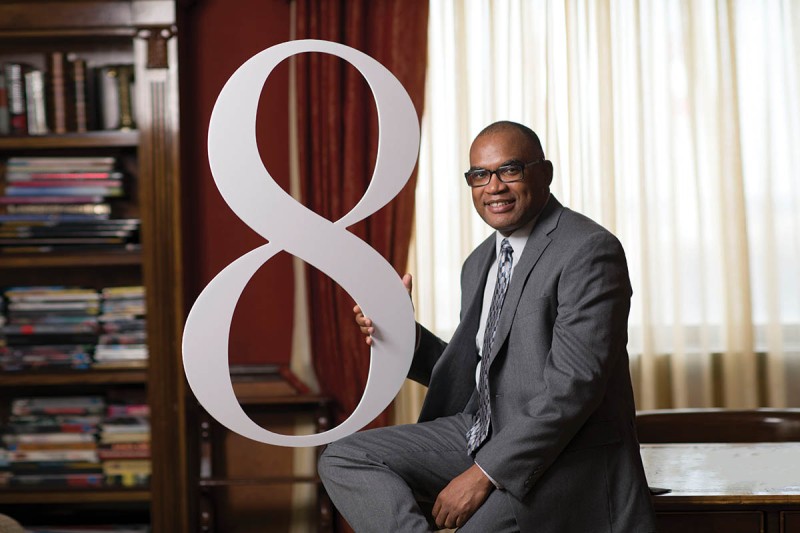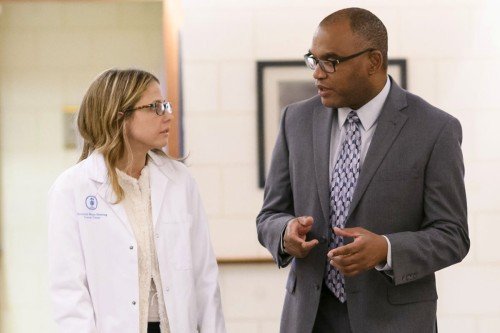
Louis Voigt, Chair of MSK's Ethics Committee, helps patients in intensive care and their families make often-complicated decisions about their treatment.
How did you choose your specialty?
Critical care came quite naturally to me both intellectually and emotionally. I did a fellowship in pulmonology, which is a field where many physicians also specialize in critical care, so it was a logical next step. The field also fits my personality and work style. I am a quick study, and fortunately am able to remain calm and decisive in emergency situations.
How has your background influenced your work?
Before coming to MSK, I worked in Haiti with several organizations whose philosophies were to treat people as whole human beings, not just as diseases or injuries. This constantly influences how I work. People in the hospital usually feel extremely vulnerable, and we need to recognize that and value who our patients are outside of their illnesses. This is how I try to conduct my life.
What brought you to MSK?
In 2001, I was interviewing for fellowship positions in critical care. The minute I entered MSK’s Intensive Care Unit I felt that this was a different type of institution. I watched a physician sitting with a family member, silently holding her hand while she cried. I was struck by the compassion, authenticity, and intelligence of this scene, and it drew me in completely. I accepted the fellowship, then a full-time position, and I have been here ever since.
What is the Ethics Committee?
We are a team of doctors, nurses, psychologists, social workers, and clergy, plus two former MSK patients and the parent of a pediatric patient. We are trained to support and counsel patients, families, and medical staff as they confront ethically challenging situations during cancer treatment. For example, in the ICU, families or care teams may have ethical questions about the appropriate use of medical interventions, such as respirators or feeding tubes, and end-of-life care. Hospital-wide, other issues include participation in research studies, the use of innovative but unproven therapies, and genetic testing.
Has the group introduced any new initiatives?
We are now addressing the unique ethical concerns of pediatric oncology. For example, the role of children and adolescents in decision-making, research participation, and fertility preservation. We have also started a pediatric ethics seminar series, where our medical staff can hear from experts in this field and discuss issues specific to our pediatric patients.
What has been the most satisfying aspect of your work?
I am proud of the growing acceptance of the Ethics Committee by a wide variety of clinical staff at MSK. We have had an increase in requests for consultations from staff, patients, and families who previously might not have considered asking for our assistance. On a personal level, I have learned to be more attentive and open-minded. In ethics, you have to reach consensus, be attentive, and mediate. I thought I already had these talents, but now I have to bring them to a much higher level.
What are your priorities for the committee?
I would like the entire MSK staff to be knowledgeable about our work. This will help reduce stress on patients and families and on our care teams. If staff can recognize a potential ethical conflict at an early stage, we can work with the parties to resolve the issue before it reaches a crisis level. We are available 24-7 for consultation in person or by phone, and we travel to other MSK sites when necessary. We live-stream our forums and workshops to all MSK locations and are updating our website so all members of our community — regardless of where they are — can efficiently access our team.
What do you like to do in your free time?
I enjoy travel and reading, especially philosophy, history, and the works of medical and business leaders who have spoken here at MSK. For pure relaxation, I love movies.


